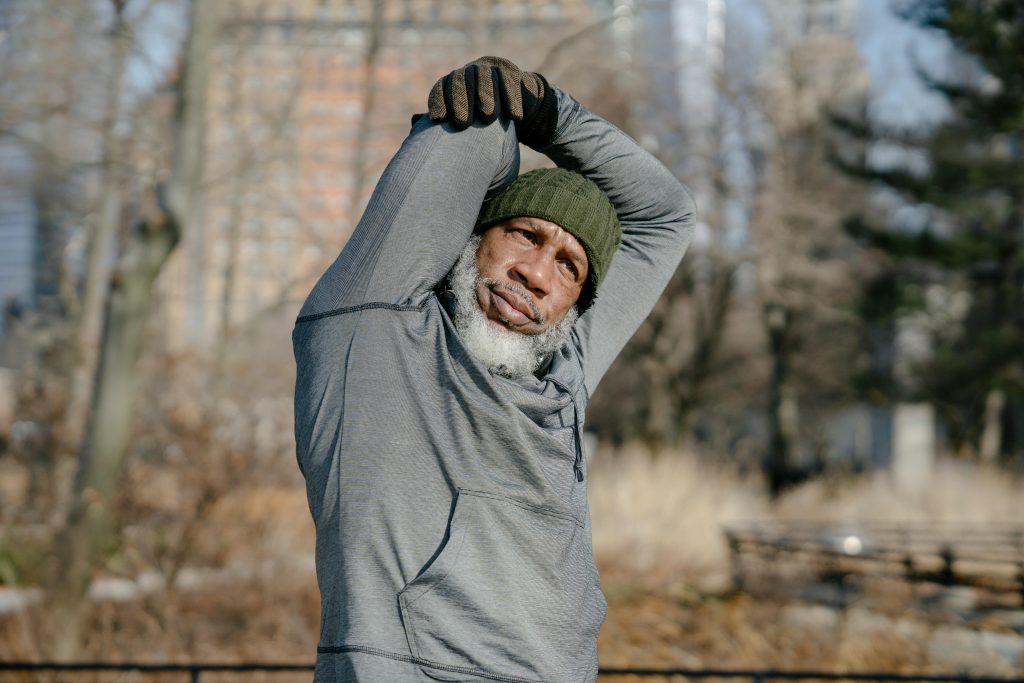Last Updated on May 26, 2024
In 2024, staying healthy often takes a backseat to the demands of daily life. But what if the key to a healthier, happier, and more productive life lies in something as simple as a regular exercise routine? Whether you’re a fitness enthusiast or someone who’s just starting out, understanding the importance of having a regular exercising schedule can be a game-changer.
Physical Health Benefits
Weight Management
Regular exercise plays a crucial role in maintaining a healthy weight. When you exercise, you burn calories. The more intense the activity, the more calories you burn. This helps in preventing excess weight gain or helps maintain weight loss. Even small changes, like taking the stairs instead of the elevator, can make a significant difference over time.
Study Insight: According to a study published in the Journal of the American Medical Association, regular physical activity is effective in maintaining weight loss. Participants who engaged in consistent physical activity were more likely to keep off the weight they had lost compared to those who did not exercise regularly .
Reduces Risk of Chronic Diseases
Regular exercise helps combat various chronic diseases. Conditions such as heart disease, diabetes, and hypertension can be managed and even prevented through consistent physical activity.
Heart Disease: Engaging in regular exercise strengthens the heart, improves blood circulation, and helps lower cholesterol and blood pressure levels. This reduces the risk of heart disease and strokes.
Diabetes: Regular physical activity helps control blood sugar levels and improves insulin sensitivity, which is crucial for managing and preventing type 2 diabetes.
Hypertension: Exercise helps in maintaining healthy blood pressure levels. According to the American Heart Association, regular physical activity can lower high blood pressure by an average of 5-8 mmHg .

Strengthens Muscles and Bones
As we age, we naturally lose muscle mass and bone density. Regular exercise helps counteract this process. Weight-bearing exercises, such as walking, running, and resistance training, are particularly beneficial.
Study Insight: A study in the Journal of Bone and Mineral Research found that individuals who engaged in regular weight-bearing exercise had higher bone density compared to those who were sedentary . This reduces the risk of osteoporosis and fractures.
Mental Health Benefits
Reduces Stress and Anxiety
Exercise is a natural and effective way to reduce stress and anxiety. Physical activity stimulates the production of endorphins, the brain’s feel-good neurotransmitters.
Study Insight: A study published in the American Journal of Psychiatry found that people who engaged in regular physical activity were less likely to develop anxiety and depression compared to those who did not exercise regularly .
Improves Mood
Regular exercise has been shown to improve mood and reduce feelings of depression, anxiety, and stress. This is partly due to the increase in endorphins, which helps promote a sense of well-being.
Study Insight: The Mayo Clinic reports that physical activity can improve mood by increasing self-confidence, reducing stress, and helping you sleep better . All these factors contribute to an overall sense of well-being.
Enhances Brain Function
Exercise improves cognitive function and reduces the risk of cognitive decline as we age. It increases blood flow to the brain, which helps in the growth of new brain cells and improves brain function.
Study Insight: Research published in the British Journal of Sports Medicine found that regular physical activity improves cognitive functions such as memory, attention, and processing speed . It also reduces the risk of neurodegenerative diseases like Alzheimer’s.
Boosts Energy Levels
While it might seem counterintuitive, regular physical activity can boost your energy levels. Exercise improves cardiovascular health, which allows your heart and lungs to work more efficiently. This means that everyday activities become easier and less tiring.
Study Insight: According to a study in the Psychotherapy and Psychosomatics Journal, regular exercise significantly improves energy levels and reduces feelings of fatigue among people with persistent fatigue .
Enhances Sleep Quality
Struggling with sleep issues? Regular exercise can help. Physical activity increases the amount of deep sleep, the most physically restorative sleep phase. It also helps regulate your sleep patterns.
Study Insight: The Sleep Foundation reports that people who engage in regular physical activity tend to fall asleep faster and enjoy deeper sleep compared to those who do not exercise regularly .
Social Benefits
Builds Community
Exercising with others can provide a sense of community and support. Whether it’s a running group, a sports team, or a fitness class, shared physical activity helps build relationships and provides a support network that can encourage and motivate you to stay active.
Increases Motivation
When you exercise regularly with others, you’re more likely to stay committed to your routine. Social support and friendly competition can help keep you motivated and accountable.
Study Insight: A study from the Journal of Social Sciences found that people who exercised with others were more likely to stick with their fitness routines compared to those who exercised alone .
Boosts Self-Confidence
Regular exercise can boost your self-esteem and self-confidence. Achieving fitness goals, no matter how small, can give you a sense of accomplishment. It also improves your body image and self-worth.
Study Insight: Research published in the Journal of Health Psychology found that individuals who engaged in regular physical activity reported higher levels of self-esteem and body image satisfaction compared to those who were sedentary .
Practical Tips for Maintaining a Regular Exercise Schedule
Set Realistic Goals
Start with small, achievable goals. This could be as simple as walking for 30 minutes a day, three times a week. As you get more comfortable, you can gradually increase the intensity and frequency of your workouts.
Make a Plan
Schedule your workouts just like you would any other important activity. Put it on your calendar and stick to it. Consistency is key to reaping the benefits of regular exercise.
Find Activities You Enjoy
Exercise doesn’t have to be a chore. Find activities that you enjoy and look forward to. Whether it’s dancing, swimming, cycling, or hiking, there’s an activity out there for everyone.
Mix It Up
Variety is the spice of life, and the same goes for exercise. Mixing up your workout routine keeps things interesting and works different muscle groups. This also helps prevent boredom and reduces the risk of injury.
Stay Accountable
Find a workout buddy or join a fitness group. Having someone to share your progress with and hold you accountable can make a big difference in staying motivated.

Track Your Progress
Keep a journal or use a fitness app to track your workouts and progress. Seeing how far you’ve come can be incredibly motivating and help you stay committed to your exercise routine.
Listen to Your Body
While it’s important to stay committed to your exercise routine, it’s equally important to listen to your body. If you’re feeling tired or sore, take a rest day. Overtraining can lead to injuries and burnout.
Conclusion
Having a regular exercise schedule is not just about staying in shape. It’s about enhancing your overall quality of life. From physical and mental health benefits to social and emotional well-being, the advantages of regular exercise are vast and well-documented.
By setting realistic goals, finding activities you enjoy, and staying consistent, you can make exercise a regular part of your life. Remember, the journey to a healthier, happier you begins with a single step. So why wait? Start today and experience the transformative power of regular exercise.
References
- Wing, R. R., & Hill, J. O. (2001). Successful weight loss maintenance. Annual Review of Nutrition, 21, 323-341.
- American Heart Association. (2021). Physical activity improves quality of life. Retrieved from https://www.heart.org
- Wolff, I., Van Croonenborg, J. J., Kemper, H. C., Kostense, P. J., & Twisk, J. W. (1999). The effect of exercise training programs on bone mass: A meta-analysis of published controlled trials in pre- and postmenopausal women. Osteoporosis International, 9(1), 1-12.
- Harvey, S. B., Øverland, S., Hatch, S. L., Wessely, S., Mykletun, A., & Hotopf, M. (2018). Exercise and the prevention of depression: Results of the HUNT cohort study. American Journal of Psychiatry, 175(1), 28-36.
- Mayo Clinic. (2020). Exercise: 7 benefits of regular physical activity. Retrieved from https://www.mayoclinic.org
- Erickson, K. I., Hillman, C. H., & Kramer, A. F. (2015). Physical activity, brain, and cognition. Current Opinion in Behavioral Sciences, 4, 27-32.
- Puetz, T. W., Flowers, S. S., & O’Connor, P. J. (2008). A randomized controlled trial of the effects of exercise on feelings of energy and fatigue: Moderating effects of baseline fatigue. Psychotherapy and Psychosomatics, 77(3), 167-174.
- Sleep Foundation. (2021). How exercise impacts sleep. Retrieved from https://www.sleepfoundation.org
- Plante, T. G., Coscarelli, L., & Ford, M. (2001). Does exercising with another enhance the stress-reducing benefits of exercise? International Journal of Stress Management, 8(3), 201-213.







